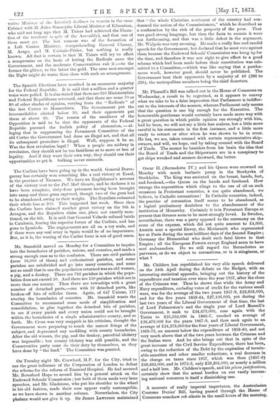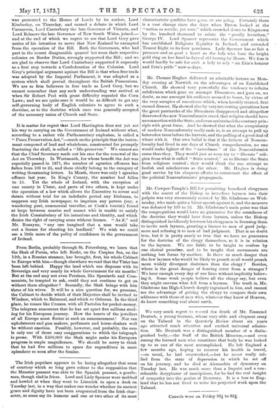A measure of really imperial importance, the Australasian Customs Duties'
Bill, having passed through the House of Commons somehow sub silentio in the small hours of the morning, was presented to the House of Lords by its author, Lord Kimberley, on Thursday, and caused a debate in which Lord Carnarvon, Lord Canterbury the late Governor of Victoria, and Lord Belmore the late Governor of New South Wales, joined,— and at the end of which we regret to see that Lord Grey gave notice of his intention to move that New Zealand be exempted from the operation of the Bill. Both the Governors, who had part in the recent disagreeable quarrel bet ween their respective colonies on Border Duties, strongly supported the Bill ; and we are glad to observe that Lord Canterbury supported it expressly as a first step towards a Confederation of the Colonies. Lord Grey's principal argument against the Bill is that when free trade was adopted by the Imperial Parliament, it was adopted as a -system which shall prevail throughout the British Possessions. We are as firm believers in free trade as Lord Grey, but we cannot remember that any such understanding was arrived at when Sir Robert Peel with great difficulty repealed the Corn Laws ; and we are quite sure it would be as difficult to get any sell-governing body of English colonists to agree to such a doctrine, as to the doctrine which once was generally accepted of the necessary union of Church and State.



































 Previous page
Previous page